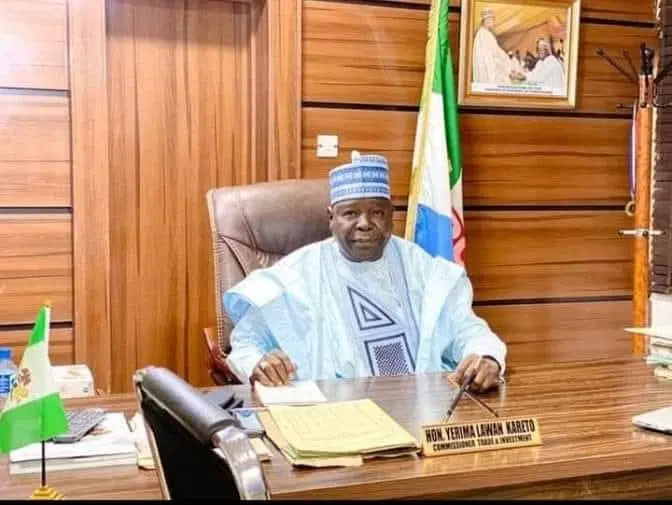News
Former Borno Commissioner Challenges Minister to Visit State Amid Boko Haram Security Concerns

A former Borno State Commissioner, Kaka Shehu Lawan Kareto, has publicly challenged the Minister of State for Defence, Bello Matawalle, to personally visit Borno State and witness the ongoing security situation caused by the Boko Haram insurgency. This call was made in response to recent remarks by Matawalle downplaying the severity of insecurity in the region and suggesting that certain political figures were exaggerating the threats for political gain.
Kareto’s statement was issued on Friday, April 11, following a growing public discourse on the federal government’s handling of insecurity in the North-East. He criticized Matawalle’s comments as dismissive and out of touch with the realities faced by residents in Borno and surrounding states. The former commissioner emphasized that insurgent attacks, killings, and abductions remain an ongoing threat in many communities, contrary to the Minister’s portrayal of the situation.
He argued that rather than engaging in political blame games, federal officials should prioritize accurate assessments of security conditions and provide practical support to affected areas. Kareto challenged Matawalle to conduct an on-ground visit to Borno and interact with residents and local leaders to understand the true scale of the humanitarian and security crisis.
Kareto, who previously served as the Borno State Commissioner for Justice and Attorney General, said that despite military gains over the years, Boko Haram and its offshoot, the Islamic State West Africa Province (ISWAP), continue to operate in parts of the state. He noted that rural communities in particular are still vulnerable to attacks, with many displaced people unable to return to their homes due to ongoing threats.
His remarks come amid increased pressure on the federal government to reevaluate its counterterrorism strategies. Civil society groups and political stakeholders have also expressed concern over statements from federal officials suggesting that the security situation has significantly improved, even as reports of violent incidents continue to emerge.
Kareto accused the Minister of attempting to discredit political opponents by minimizing the crisis. He urged federal appointees to refrain from politicizing security issues and instead focus on collaborative efforts to restore peace and rebuild war-torn communities.
The former commissioner pointed to the recent abduction of several individuals in remote areas and continued reports of attacks on farmers as clear signs that Boko Haram’s threat is far from over. He also highlighted the struggles of internally displaced persons (IDPs) living in camps across Borno, many of whom are still dependent on humanitarian aid.
He reiterated his challenge for Matawalle to visit specific areas like Gwoza, Kukawa, and Marte—regions that have experienced some of the worst attacks over the years—to witness firsthand the level of destruction and ongoing risk.
Kareto’s comments have sparked fresh debate on the federal government’s messaging regarding national security. While the military has claimed notable victories over terrorist groups, including the reclamation of previously held territories, critics argue that security gains are fragile and often reversed due to sporadic but deadly attacks.
Residents and local leaders in Borno have long called for more inclusive approaches to post-conflict recovery, including improved infrastructure, education, and economic opportunities to counter the appeal of extremist ideologies. Many believe that such long-term solutions, combined with effective security operations, are essential to ending the cycle of violence.
As of now, Minister Bello Matawalle has not officially responded to Kareto’s challenge. The call, however, adds to the mounting pressure on the Tinubu administration to adopt a more transparent and grassroots-driven approach to dealing with insecurity in Nigeria’s North-East region.
